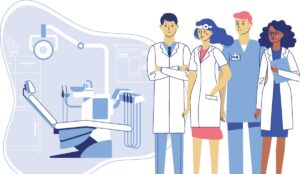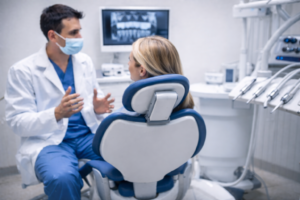Top Tips to Ace Your First Dental Graduate Interview
Learning how to prepare for a dental job interview is key to helping dental graduates succeed in their careers. Changing from dental school to your first role can be distracting; however, if you use dental graduate interview tips, you can enter the interview with confidence and a good plan. It doesn’t matter if you are being hired for a community health center, a dentist’s office, or a dental hospital—the more you prepare, the more you will impress.
With this guide, you’ll learn all the steps you need to take, from highlighting your medical skills to working on soft skills, to land your dream job.
Dental Graduate Interview Tips: Building a Strong Foundation
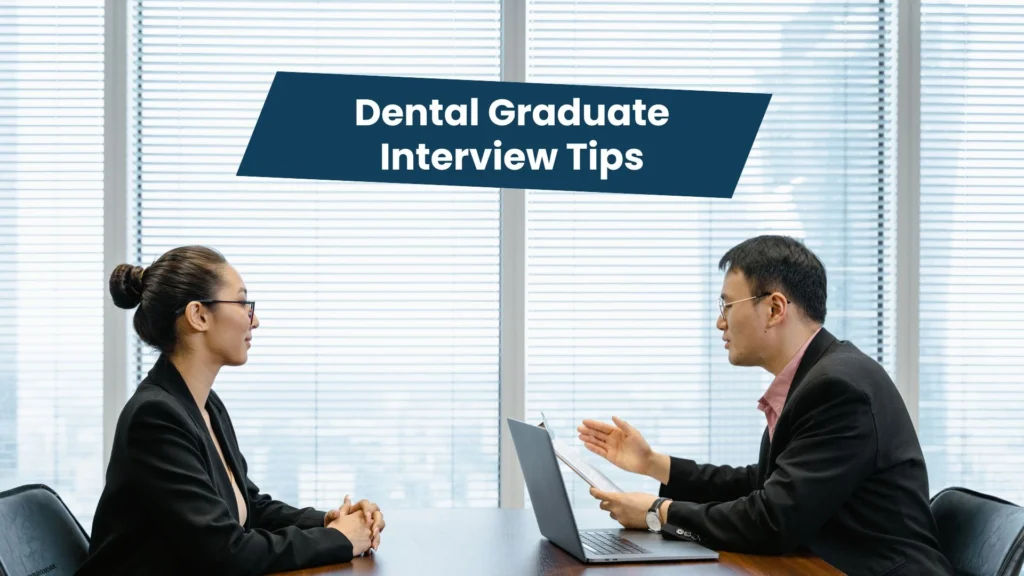
There is more to showing readiness if you are a recent dental school graduate than just your grades. Those who are selected by employers have demonstrated good clinical skills and soft skills.
Study What the Practice Represents: Check the practice’s goals and principles, the types of people who seek care there, and the services available.
Update Your Resume: List your most valuable coursework, clinical work, and special projects on your resume.
Practice the usual questions: Answer them to prepare for expressing your experiences well.
Dress Wisely: Choose clothing that demonstrates how a professional in healthcare should be dressed.
Read also: How to Become a Specialist in Dentistry
First Dental Job Interview Questions: What to Expect
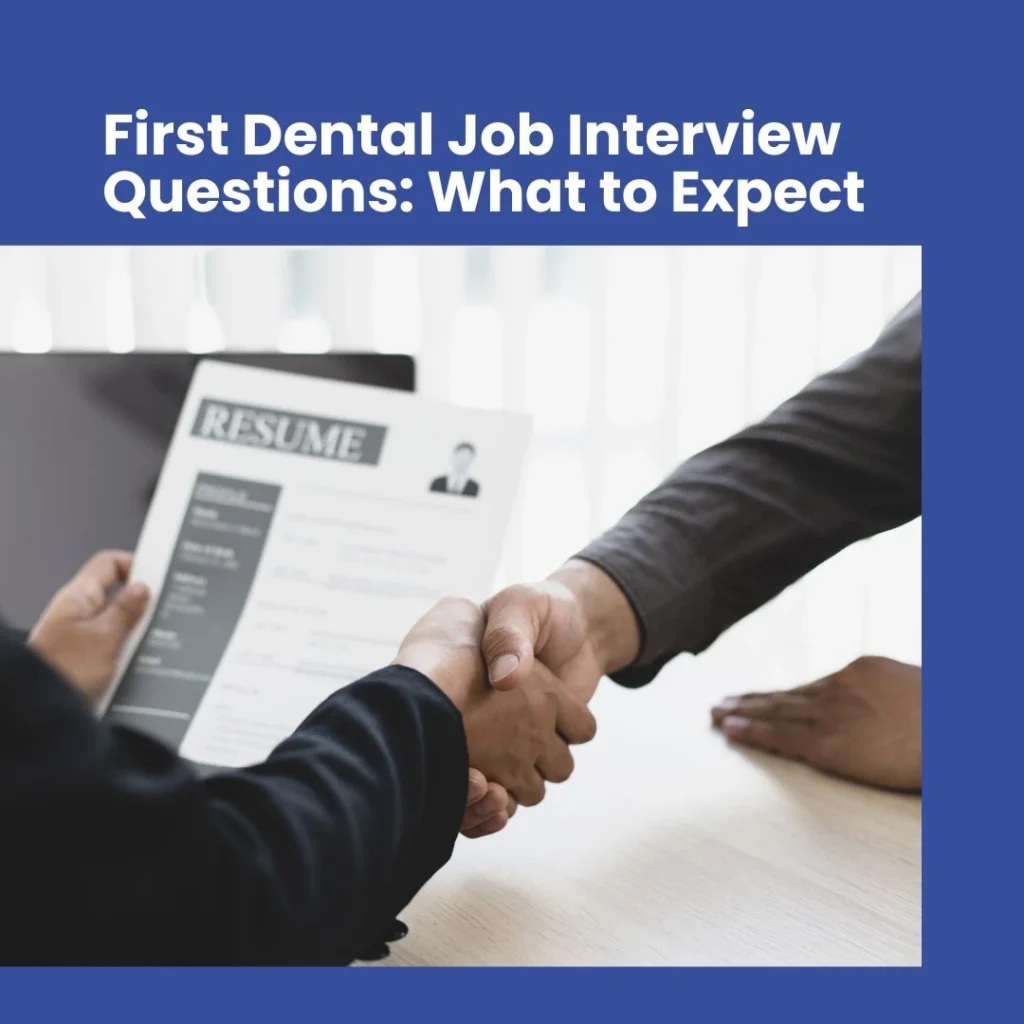
- Why did you decide to become a dentist? Explain to your learner why you are passionate about your field.
- How do you comfort patients when they are anxious? Share ways you practice to ease the anxiety of your patients.
- Explain a difficult case you faced and the way you dealt with it.
- Give an example that shows how you handle various problems.
- What is your plan for the future of your career? Talk about what you hope for and how your career dreams and plans match the role you’re applying for.
- What techniques do you use to follow developments in dentistry? Share journals, workshops, or courses you are involved in.
New Dentist Interview Advice:

- Recognize your improvement as well as where you feel you need to work on.
- Highlight that you are prepared to keep learning as time goes on.
- Discuss situations where the team joining forces resulted in success.
- Make sure to ask about being a mentee and how to get involved in the culture.
Dentist Interview Preparation Guide: Final Steps Before the Big Day
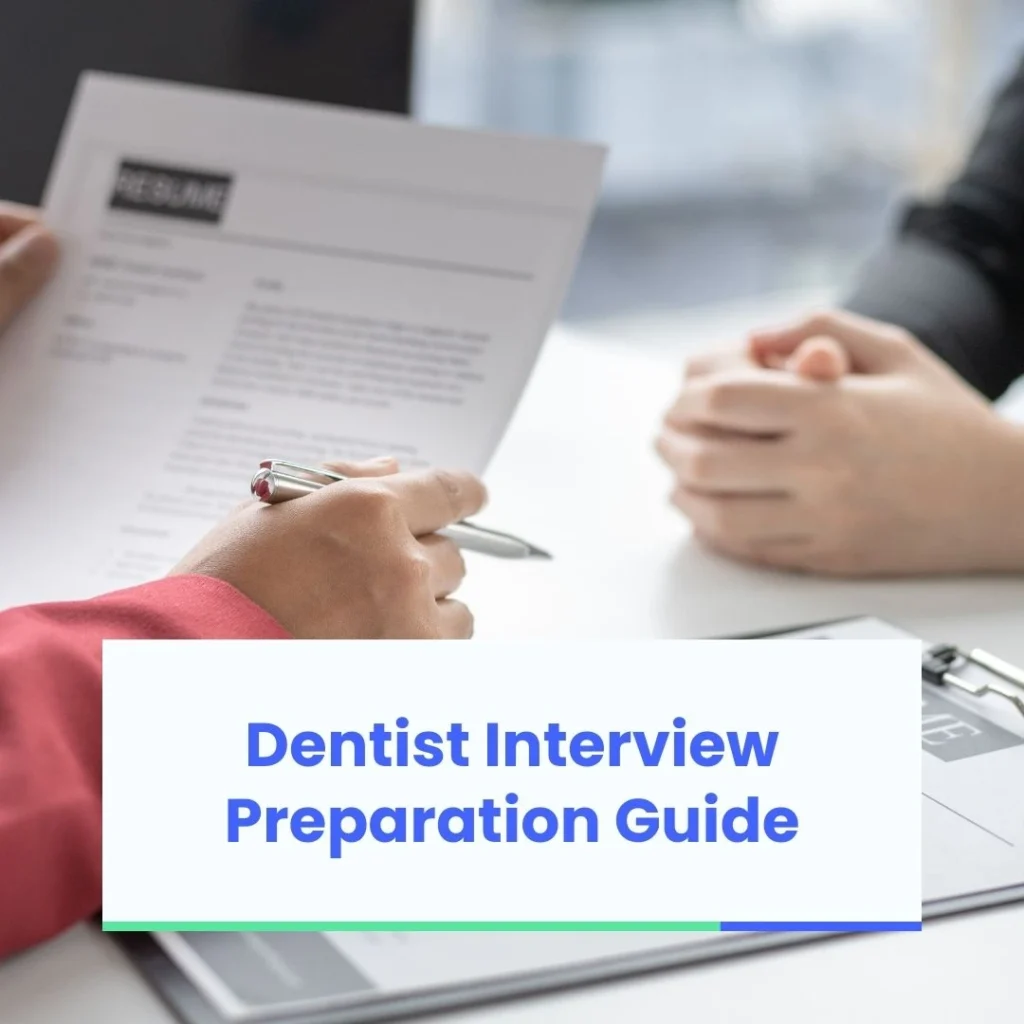
A proper dental interview guide covers both the practice and practical steps needed.
Mock interviews: Practice with others to help yourself become better at answering questions.
Go through case studies: Review important techniques that apply to your field.
Assemble Your Portfolio: Place case studies, sagittal split screens, and your treatment plans inside it.
Figure Out Your Path: Check where you are headed and be ready for unexpected holdups.
Read More: Highest Paying Dental Jobs Salaries in USA
Final Outcome: Embracing the Journey Ahead
Getting your first dental job is a major achievement in your career. Following these dental graduate interview tips allows you to look and feel confident during the interview. Never forget, each chat with someone new gives you extra information for your career path.
Ready to put these strategies into action? Begin by conducting mock interviews, updating your portfolio, and reaching out to mentors for feedback. Whether you’re exploring jobs for dental graduates or preparing for your very first role, tapping into graduate dentist recruitment resources can give you a strong edge in the competitive dental job market.
Frequently Asked Questions; How to Prepare for a Dental Job Interview
Q1: How can I highlight my strengths as a new graduate?
Focus on your clinical experiences during school, any externships, and your eagerness to learn and grow within the practice.
Q2: What should I include in my dental portfolio?
Incorporate case studies, treatment plans, and any research projects that showcase your skills and knowledge.
Q3: How do I discuss salary expectations?
Research average salaries for entry-level dentists in your area and be prepared to discuss your expectations based on that data.
Q4: Is it appropriate to ask about mentorship opportunities?
Absolutely. Inquiring about mentorship shows your commitment to professional development.
Q5: How can I manage interview anxiety?
Practice relaxation techniques, such as deep breathing, and prepare thoroughly to build confidence.
Q6: What questions should I ask the interviewer?
Inquire about the practice’s culture, patient demographics, and expectations for new associates.
Q7: How do I follow up after the interview?
Send a thank-you email expressing appreciation for the opportunity and reiterating your interest in the position.
Q8: What if I don’t know the answer to a clinical question during the interview?
It’s okay to admit you don’t know, but express your willingness to research and learn.
- hjgbhjjbdf
- jfbnnj
- kjngrjk
- huiijhr
- \kjjhbrtki
